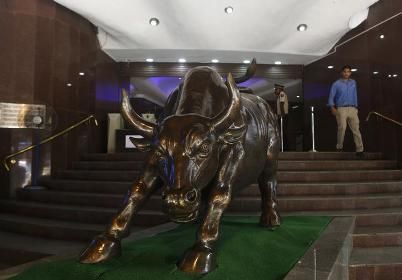The Indian markets will do much better next year, as corporate earnings will catch up with favourable macros, says Neelesh Surana, head of equities at Mirae Asset Global Investments.
 In an interview to Chandan Kishore Kant, Surana says the recent correction has opened investing opportunities across sectors.
In an interview to Chandan Kishore Kant, Surana says the recent correction has opened investing opportunities across sectors.
Edited excerpts:
It has been a disappointing year for the market. What are the expectations for 2016?
Market returns will track recovery in corporate earnings, currently well below the long-term averages.
We believe current disconnect between favourable macros (current account deficit in control, stable inflation, favourable interest rate glide path) and muted earnings should be bridged over the next few quarters.
In this context, we would expect returns in 2016 to be much better, as markets tend to move in sync with earnings growth, particularly when valuations are reasonable.
Corporate earnings have continued to disappoint for a fifth quarter in a row. Do you see any silver lining in the foreseeable future?
Overall numbers were negatively impacted due to weak global demand, poor rural demand on account of three consecutive seasons below average monsoons and absence of corporate capex.
On the positive side, there are indicators of improvement in consumer-related areas and government spending.
We expect recovery in corporate earnings going forward, given low base, full impact of interest rate transmission, and pick-up in consumer spending, which will get an added fillip post-seventh pay commission.
Of all the factors, lower interest rate will have the most significant impact in the long-term as it impacts demand, cash flow conversion, and saving pattern.
Will next year be better suited for a top-down or a bottom-up approach?
It will be a mix of stock picking and sectors. Markets over the past five years have become polarised (although blurred a bit recently) and in this context, stock selection would be crucial.
For instance, within quality stocks (in general, not cheap), one needs to be selective regarding growth visibility.
 Where do you see the most money-making opportunity in the next 6-12 months?
Where do you see the most money-making opportunity in the next 6-12 months?
You would appreciate, six months is too short a timeframe for equities.
Post the correction over the past one year, we are seeing opportunities across sectors.
Specifically, we are positive on many consumer-oriented businesses, particularly in segments which are relatively reasonably priced.
Which sectors would you strictly avoid?
Typically, we avoid companies (or sectors) where return on capital employed is lower than 15 per cent on a pre-tax basis, and growth is sub-10 per cent.
Domestic investors have been big buyers this year, amid a sell-off from foreign investors. Will this continue?
Our investment approach remains same-to participate in quality business up to a reasonable price, and hold them over an extended period.
Foreign institutional investors flows have been negative across emerging market flows, and India is no exception. However, the fact is India growth traits are much superior, over time FII selling would reduce. Potential for domestic investors to invest remains significant given the pent-up demand arising from low allocation to this asset class historically.
What are the three challenges for the economy and stocks?
Three challenges which can impact markets are slow pace of global growth, fallout of low commodity prices, and the government's inability to balance the fiscal deficit.
While developed economies are moving out of repair, growth across many emerging markets could moderate, given high dollar debt.
Also, there is a negative fallout of low commodity prices both globally and on non-performing assets (NPAs) in the domestic banking system.
A key long-term challenge for India remains ability to rein in the consolidated fiscal deficit.
The government expenditure bill will increase going forward, with the proposed revision in wages, and likelihood of other measures to support rural income.










 © 2025
© 2025